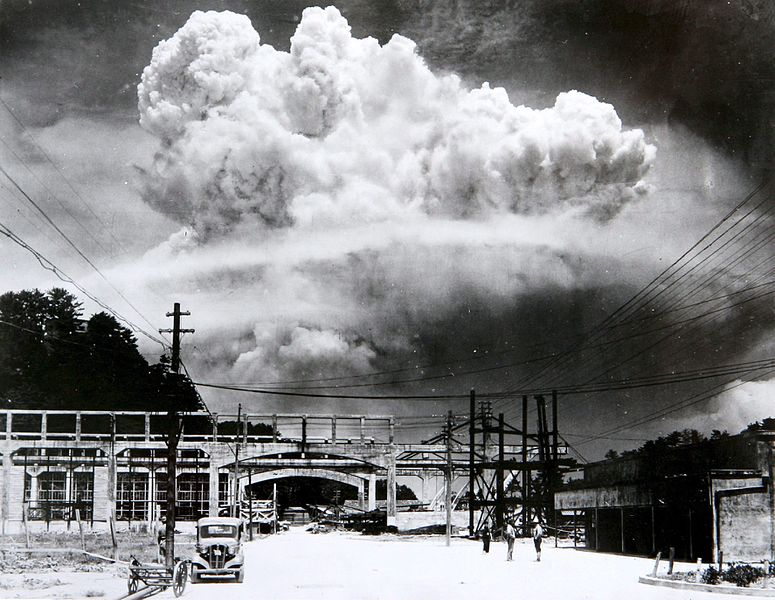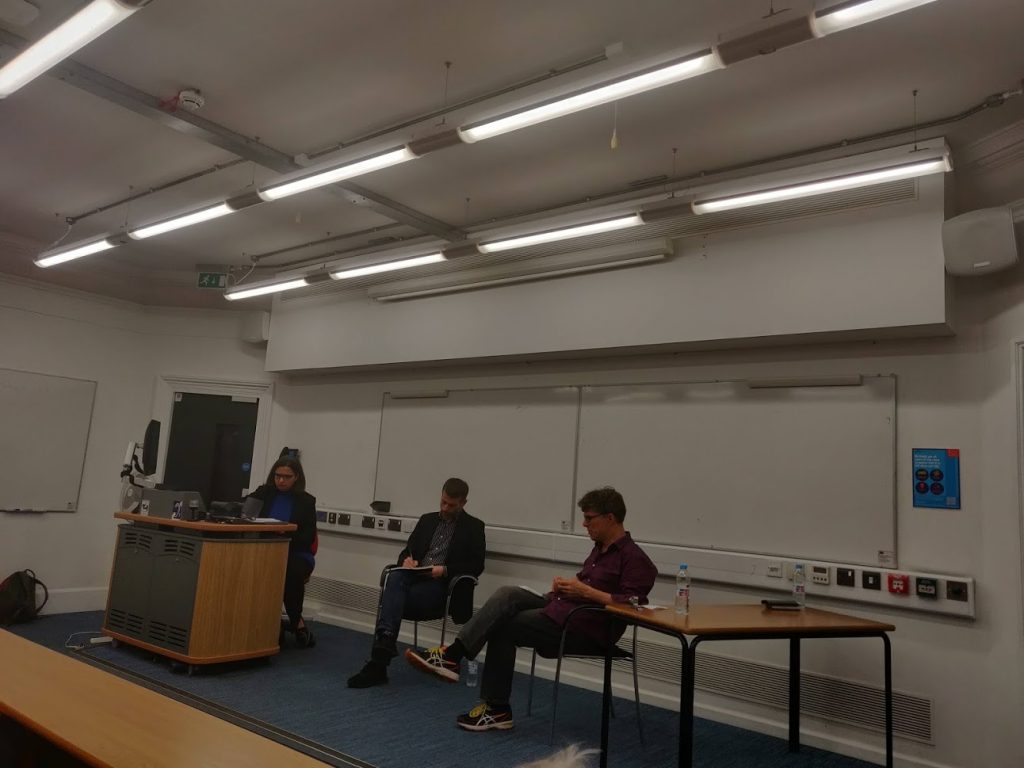by Aleix Nadal Campos

The Arab states have laid two pathways for Israel to normalise its diplomatic ties with them. The first is through the Saudi-led 2002 Arab Peace Initiative, which establishes that Arab states will only recognise Israel once a peace settlement with Palestine has been achieved. The second, and less noticed one, is through the Weapons of Mass Destruction Free Zone in the Middle East’s (WMDFZME) initiative, whereby the Arab states and Iran have implicitly acknowledged that Israel could gain their formal recognition once the latter has dismantled its nuclear arsenal. Yet, the agenda of the Arab states and Iran in regard to the Zone initiative is presumably incompatible with Israel’s, whose single objective is to establish diplomatic relations with regional states. In this vein, by offering diplomatic normalisation with two Gulf countries without any stipulation that binds Israel to clear disarmament commitments, the Abraham Accords have undermined the few instruments that Arab states and Iran had at their disposal to entice Israel into foregoing its nuclear capabilities.
The Abraham Accords
Israel’s (unrecognized) nuclear arsenal serves to ultimately safeguard the country from self-perceived existential threats and quantitative asymmetries vis-à-vis other regional states. These asymmetries, however, could soon be diminished. On 15 September 2020, U.S. President Donald J. Trump hosted a ceremony at the White House where the United Arab Emirates and the Kingdom of Bahrain forged official bilateral diplomatic ties with Israel. Immediately following this, the three Middle Eastern countries issued a joint declaration of principles that has been since dubbed as the Abraham Accords. Statements by US and Israeli officials suggest that other regional countries may soon follow in Bahrain’s and UAE’s footsteps, giving Israel the official recognition it has always sought. Because Israel has justified its nuclear arsenal on the basis of a threat of an all-out war against them, one could surmise that the Abraham Accords could become a watershed moment for the eventual de-nuclearisation of Israel and the region as a whole. Unfortunately, diplomatic and security-related factors emerging from the Accords will further deter Israel from acquiescing to join a WMDFZ in the Middle East.
The history of the Weapons of Mass Destruction Free Zone in the Middle East
To dismantle Israel’s nuclear monopoly and shrink its strategic superiority, Arab countries and Iran have long advocated for the de-nuclearisation of the Middle East. In 1974, Iran and Egypt submitted a joint proposal to the United Nations General Assembly to create a Nuclear Weapons Free Zone in the Middle East (NWFZME) that would forbid the development, testing, possession, acquisition, deployment, and use of nuclear weapons in the region. Since 1980, annual resolutions from the UN General Assembly endorsing the proposal were approved unanimously until 2018, including by Israel, demonstrating that even the latter supports the initiative. The scope of the prospective treaty was subsequently broadened to include all weapons of mass destruction following a proposal by the Egyptian President Hosni Mubarak in 1990.
Whilst several dialogues have taken place since the initiative’s inception, through both official channels and backchannel diplomacy, progress has been notably absent, at least until recently. In November 2019, a conference under the United Nations’ auspices was held where all Arab states and Iran, as well as extra-regional countries, participated to discuss the creation of a Weapons of Mass Destruction Free Zone in the Middle East (WMDFZME). Henceforth, the November Conference is expected to be held annually until an agreement on the Zone is secured. Citing that the conference represented an attempt by the Arab states and Iran to impose a diplomatic process without prior consultation, Israel declined to participate in the first edition and is not expected to attend the second one, partly withering away the momentum generated by the new multilateral process. If this opt-out continues, the credibility of the entire process could be put into question, for the dismantlement of Israel’s nuclear capabilities remains the chief target of the initiative.
In essence, the persistent lack of progress and Israel’s non-involvement in the Conference reflects the fact that the ultimate objectives of Arab countries and Iran are diametrically opposed to those of Israel. For the former countries, the Zone is an instrument to dismantle Israel’s nuclear arsenal and erode the military edge that Israel enjoys over other regional countries. For the latter, any framework to negotiate a WMDFZ in the Middle East is desirable to the extent that Israel can use the process itself to normalise diplomatic relations with regional countries. These conflicting objectives have translated into a sort of chicken-and-egg dilemma about the sequencing between ‘regional peace’ and ‘disarmament’. In particular, Israel has adopted a security-based approach whereby disarmament should only occur in a context where regional peace has been previously reached. Conversely, Arab countries and Iran contend that disarmament itself creates regional peace and as such Israel should proceed with dismantling its nuclear arsenal if it ever wants peace in the region.
The question that remains, then, is whether the Abraham Accords can encourage Israel to re-engage with the Zone initiative and participate in the yearly conferences until its de-nuclearization is agreed upon.
The Abraham Accords and the de-nuclearization of Israel
In addition to the UAE’s and Bahrain’s failure to extract disarmament commitments from Israel, which undermines the ‘disarmament first’ approach taken by Middle Eastern countries, there are two security-related factors emanating from the Abraham Accords that thwart the efforts to establish the Zone. First, the Accords are an extension of the increasing bilateral cooperation that has taken place for the past few years between Israel and some of the Gulf countries in the security field. This cooperation has been largely motivated by their shared interest to contain the emergence of Iran as a determined geopolitical player and by their hostility towards the conclusion of the Joint Comprehensive Plan of Action (JCPOA). By formalising this anti-Iran coalition, the deal may then contribute to exacerbating inter-state polarisation in the Persian Gulf, potentially encouraging Iran to resume its pursuit of nuclear weapons. In turn, the escalation of tensions could strengthen Israel’s self-perceived legitimacy to have a nuclear deterrent as the country considers Iran as its largest security threat. Thus, in Iran, Israel would have the perfect alibi to not seriously engage with the Zone initiative.
Second, reports that the US would reward the UAE’s normalisation agreement with Israel by allowing it to purchase the F-35 fighter further dwindles the prospects of a WMDFZME. Such a sweetener would not be unprecedented in the context of a US Administration brokering a peace deal between Israel and an Arab country. Indeed, the US delivered significant military assistance to both Egypt and Jordan in 1979 and 1994, respectively, when they signed their peace treaties with the Jewish state. If the UAE was to receive this military payoff, however, Israel’s qualitative military edge over Middle Eastern countries that the US has long been committed to would be compromised, albeit only partially.
Other Arab countries could then interpret that peace with Israel in exchange for US military assistance would be the new gold standard and subsequently demand analogous conditions, contributing to the erosion of Israel’s conventional military superiority in the region. In such a scenario, it would be hard to envisage Israel being more willing to take progressive steps towards nuclear disarmament when nuclear superiority would constitute the ultimate strategy to offset this potentially new military reality. In fact, some Israeli officials have already aired their concerns that an arsenal of the F-35 fighter jet in the hands of an alternative leadership cadre in the UAE that is less keen on building bridges with Israel would constitute a security threat.
Conclusion
The Abraham Accords might usher in a new era in the Middle East where regional peace is progressively achieved. Accordingly, they could result in the configuration of novel security conditions that are more conducive to Israel’s nuclear disarmament. Seen in this light, the Accords could be positively assessed in terms of its contribution to nuclear disarmament. In fact, it is not implausible to assume that Israel could participate in upcoming editions of the November Conference as a gesture of goodwill towards the Arab states, for its participation would not entail any binding commitments with respect to its nuclear posture. Nevertheless, despite their positive potential, the Accords may have entrenched a series of incentives that undercut the (already) dim prospects of establishing a Weapons of Mass Destruction Free Zone in the Middle East in the foreseeable future.
Aleix Nadal Campos received his MA in European Studies: International Relations and European Politics from Maastricht University. He is currently an EU Non-Proliferation and Disarmament Consortium intern at the Istituto Affari Internazionali (IAI) in Rome. In the course of his internship, he has published a paper on the policy options that the European Union can adopt to streamline the prospects of establishing a Weapons of Mass Destruction Free Zone in the Middle East. You can find him on Twitter @AleixNadal.





